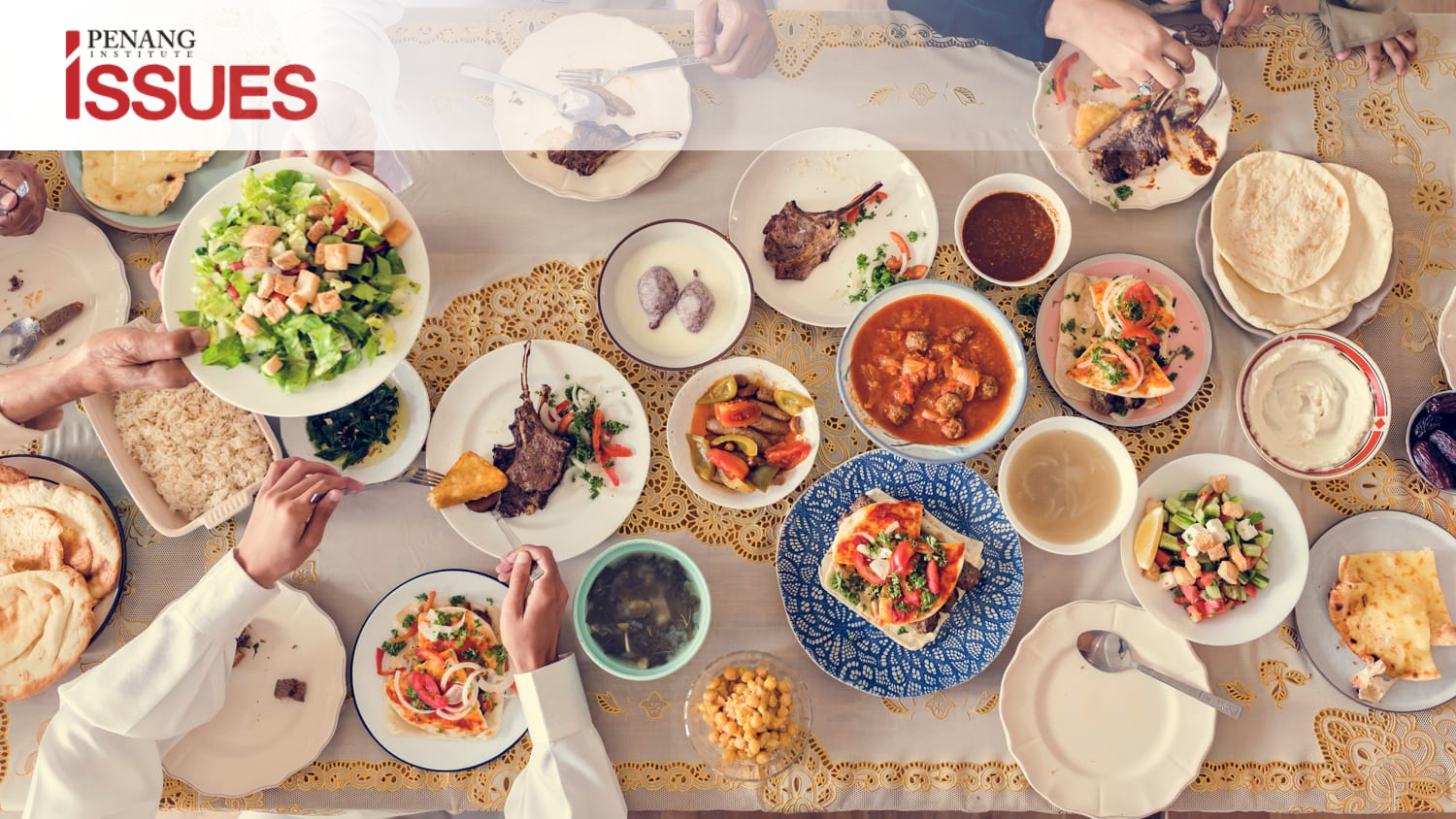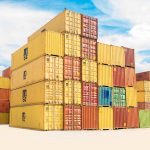
Executive Summary
- Halal certification, typically associated with food-related products and services, encompasses a broad spectrum beyond just food, and include areas such as tourism and personal healthcare. At both state and federal levels, bodies like Penang Halal International (PHI) and Halal Development Corporation (HDC) are tasked with promoting and developing the halal ecosystem.
- The halal regulatory bodies face challenges in addressing concerns raised by the private sector, such as differences in certification requirements between establishments like hotels and shopping complexes. Mechanisms for systematic engagement with industry players need enhancement to ensure fairness and effectiveness.
- Inefficiencies in the halal certification process pose significant challenges for businesses, affecting their competitiveness. There is a need to adopt digitalization and other technologies to streamline processes and reduce costs associated with certification.
- State-level authorities possess powers over certification, suggesting the potential for developing distinct approaches to halal regulation and promotion. Greater involvement of local government authorities could enhance efficiency and spread the reach of halal certification.
- Alongside increased involvement of lower authorities in halal regulation and enforcement,
corresponding efforts are needed to facilitate halal certification for businesses at the local level. This could involve enacting laws and policies to streamline the approval process.
Introduction
Penang is widely recognized for its role in placing Malaysia squarely on the map of the world’s semiconductor producers, and as a major supplier in the electrical and electronics sector. As is widely known, Penang-based companies provide 13% of global microchip testing and packaging, and contribute more than 40% to Malaysia’s total E&E supply. But while Penang’s semiconductors and E&E as a whole have served as pillars and drivers of Penang economic strength, their ability to maintain pole positions in the medium- to-long term is significantly under question in the face of external challenges such as competition from other countries in Asia, and geopolitical developments such as the US-China trade war. For these reasons, it is recognized that Penang must develop other blue oceans.
One such blue ocean is the state’s halal industry: Muslims make up more than 40% of the population in ASEAN – a significant market on both the demand and supply sides. Malaysia took concrete steps over the past few decades to build its halal industry and infrastructure, and has reached a pole position among ‘halal economies’. Much of that achievement, however, is by virtue of the tremendous support given at the federal level for Malaysia to become a halal hub and benchmark for economies in the region and around the world. But the need for greater urgency, efforts, collaboration, resources, and efforts dedicated to developing the halal ecosystem in Penang, specifically, and in Malaysia generally, is underscored by the prospect that neighbouring countries such as Indonesia, Thailand, and even the Philippines and Vietnam, are making great strides in developing their halal ecosystems and capabilities that might sooner or later overtake and overshadow Malaysia.
This paper provides an overview of the policy challenges facing efforts to promote and develop the halal business ecosystem in Penang, and the possible solutions that should be considered in order to tackle and overcome those challenges.
Challenges
A Whole-of-state-and Federal Approach
Halal is most generally associated with the certification of food-related goods and services, such as food products and restaurants, that are produced or supplied in compliance with the Shari’ah, as determined and enforced by such bodies as Bahagian Pengurusan Halal (Division of Halal Management) under the Jabatan Hal Ehwal Agama Islam Pulau Pinang (Department of Islamic Affairs of Penang) at the state level. At the federal level, the body most widely associated with halal is the Jabatan Kemajuan Islam Malaysia (JAKIM, Department of Islamic Development Malaysia).
However, halal as a blue ocean covers much more than food and food-related products and services, and involve a large number of private and public sector entities, institutions, agencies, laws, and policies. In fact, halal involves goods and services in tourism, personal healthcare, and a myriad of other sectors and industries.
Penang Halal International (PHI) is tasked with promoting and developing Penang’s halal business ecosystem. At the federal level, its counterpart is the Halal Development Corporation (HDC), under the Ministry of International Trade and Industry, with a mandate similar to PHI in Penang, but at the national level and international level: to develop the country’s halal ecosystem and infrastructure and to promote to markets nationally and globally. The Ministry of Domestic Trade and Costs of Living, meanwhile, is involved in halal enforcement under Trade Description Act 2011.
This raises the first question that should be addressed seriously at the state level: how much attention, resources, efforts and collaboration are channelled to the promotion and development of the halal business ecosystem in Penang? To what extent is PHI empowered to develop and promote halal in the state? How much have federal bodies such as the HDC engaged, collaborated and coordinated with PHI to promote and develop the halal business system within Penang, and to promote Penang’s halal offerings to overseas markets?
Incorporating Industry into Halal Institutions
The second challenge is the lack of mechanisms for the halal regulatory bodies to systematically and regularly tackle and redress legal, policy, and enforcement concerns raised by the private sector. Some quarters in the hotel industry, for example, allege that the Malaysian Standards (MS) 1500:2019 Halal Food General Requirement that replaced the MS 1500:2009 contains requirements for certification that are more stringent. More importantly, there are differences between certification requirements.
For example, requirements imposed on restaurants in hotels that serve both halal and non-halal fare, on the one hand, are different from those imposed on restaurants in shopping complexes that offer similar fare – leading to charges that the requirements are discriminatory. For example, MS1500:2019 requires restaurants seeking to be halal-certified to have equipment, areas and processes for halal foods and ingredients that are separate from equipment, areas and processes for non-halal foods and ingredients, those located in shopping complexes are exempt from such requirements. While such a concession for shopping complexes might be understandable given the structural differences between shopping complexes and hotel buildings, it raises the issue of differential treatment, despite there being restaurants in shopping complexes that offer non-halal fare side-by-side with restaurants that offer halal.
Inefficiencies and Costs
A third problem that has long been raised by industry pertains to inefficiencies in the halal certification process. For the private sector – to which a delay of just one business day could translate to a loss of tens of thousands of ringgit – the question of efficiency and effectiveness could mean the difference between embracing or rejecting halal as a whole. In fact, efficiency and efficacy are at the root of four of the half-dozen issues that have previously been raised about the halal certification process in Malaysia: problems with the online MyeHalal system, the lack of manpower, halal auditors’ lack of skills and knowledge, and the processing of halal certification applications (e.g, Muhammad et al. 2020).
But of course, committing increased resources brings along increased costs. This raises the imperative of adopting and adapting to appropriate technologies, such as digitalisation. Presently, the halal certification system is predominantly a ‘pen-and-paper’ industry, resulting in long, drawn-out processes. Malaysia’s emphasis on tackling global halal markets and supply chains have compounded the problems in the sense that demands from all over the world for Malaysian halal certification have overwhelmed JAKIM’s capabilities, such as its inspectors and auditors, to process applications. This is aside from the costs borne by businesses overseas for JAKIM to carry out its inspections, audits, and other processes for both first-time applications as well as for renewal of halal certificates.
Policy Recommendations
1. Greater Role, Activism of State and Local Authorities
For greater efficiency in the halal certification system, it is possible to develop options based on the unique arrangement of federal-state powers with regards to Islamic affairs contained in List II (State List) of the 9th Schedule of the Federal Constitution. The fact that Penang, like every other state in the nation, possesses powers over certification, also raises the possibility of Penang developing its own distinct approach to halal regulations and promotion.
2. Spreading the Halal Net by Facilitating Approvals of Halal Certificates
Related to the above is the possibility to enact laws and policies that incorporate greater local government authorities into the certification and enforcement of halal.
With greater involvement of lower authorities in the regulation and enforcement of halal, the need increases for a correlating move towards facilitating halal certification for businesses at the local level (Abdul Aziz, N. et al. 2022). A comparable example is that of income tax: with the widening of categories of taxable individual incomes, the authorities have also increased the ease – and assistance – for individuals to self-declare their incomes.
3. To Establish an Inter-agency Coordination Office
A central office is needed, tasked with overseeing and facilitating communication, collaboration, and coordination among different agencies. This could serve as a hub for sharing information, best practices, and resources.
Conclusion
To conclude, halal is a blue ocean that holds limitless potential to augment the economic strengths and advantages that Penang currently enjoys. In order to capitalise on the early-mover advantage that Malaysia has in the halal economy relative to other countries, there must be greater collaboration, synergy, and efficiency within the state, and between state and federal agencies. The decision for businesses to seek and acquire halal certification should be a decision that tips easily and overwhelmingly in favour of certification. One possible direction for greater dynamism to be infused into the halal regulatory and promotion system is for greater initiative, activism and flexibility to be exercised by Penang state authorities relative to federal government agencies. But if the net and scope for greater halal application is cast wider, there must be an equal – if not greater – degree of facility and ease for local businesses to acquire and maintain their certification of halal compliance.
References
Abdul Aziz, Norazlina, Siti Sarah Sulaiman, Muhammad Azril Roslan, Ku Mohd Amir Aizat Ku Yusof, Nurazlina Abdul Raof. (2022). Combined task force between the local authorities and JAKIM to control the halal food premises in Malaysia: a proposal. Journal of Fatwa Management and Research, 27: 2-SE (November 2022), 108-120.
Muhammad, M.A., A.B. Elistina, and S. Ahmad. (2020). The challenges faced by halal certification authorities in managing the certification process in Malaysia. Food Research, 4: Suppl. 1 (February 2020), 170-178.
You might also like:

Reclaiming Penang’s Historical Role as a Prominent Literary Translation Hub

Penang Economic Outlook 2020: A Rough Year Ahead

Breaking Old Habits is Vital for Malaysia’s Mainstream Newspapers

Performance Sustained during Covid-19 Highlights Strong Fundamentals in Penang’s Trade in Goods

Evaluating the Penang South Reclamation (PSR) Project According to the United Nations’ Sustainable D...

